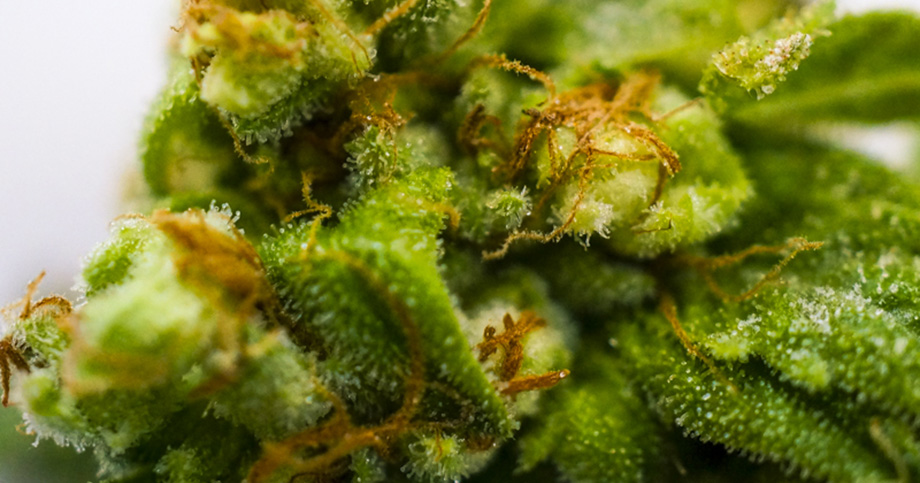Cannabidiol (CBD) is one of the most common Cannabinoids in the cannabis plant after THC. Unlike its big brother, Tetrahydrocannabinol (THC), Cannabidiol is completely non-psychoactive.
The structure of cannabidiol was discovered by the pharmacologist Prof. Raphael Mechoulam and his research partners back in 1963 in Israel.
The acidic form of CBD- CBDa, is the main cannabinoid which exists in the Hemp plant (Cannabis Sativa L).
CBD and CB-2 Receptor
CBD is one of more than 100 chemical compounds found in the cannabis plant, known as cannabinoids. Cannabinoids are agonists that bind to special receptors on human cells, called cannabinoid receptors.
CBD is produced either in the Cannabis plant’s Trichomes or it can also be synthesized under lab conditions.
CBD has a high affinity to CB-2 receptors and unlike THC, does not penetrate the blood-brain barrier (BBB).
The CB-2 receptor is part of the Endocannabinoid system (ECS), which is generally considered to be a protective system within the body. Stimulation and triggering of the Endocannabinoid system in physical and neurological stress conditions will lead mostly to a sequence of activities of a protective nature.
The CB-2 receptor works in conjunction with the immune system and with various other physiological systems which control cytokine activity.
The medical advantages of Cannabidiol (CBD)
CBD is poly-pharmacological, meaning that it can affect multiple different pathways in the body at once. This makes it extremely difficult to study, as it is almost impossible to tell what effect these different interactions have upon each other. However, regardless of a lack of high-quality human trials, many medical cannabis patients find relief when taking this calming cannabinoid.
CBD has been found effective as a treatment for anxiety, inflammation, depression, epilepsy, and many more medical conditions. Moreover, CBD is considered to be an anti-oxidant agent, anxiolytic (anxiety relieving), analgesic (pain relieving). CBD also counteracts the psychoactive effects of THC, such as paranoia and anxiety.
CBD is known to also directly or indirectly affect the following:
CBD’s efficacy is characterized as “bell type”- in that it may be ineffective in low and high doses.
The Entourage Effect
While CBD is a powerful medicine on its own, it’s important to note that the compound’s effects are amplified when combined with other cannabinoids and terpenes.
The entourage effect refers to combinations of several cannabinoids together with terpenes, which work together in synergy to produce a “stronger” therapeutic effect on the body. The entourage effect has already been used in pharmaceutical medicines which are botanical drug and full plant extracts.
For example, GW Pharmaceuticals Multiple Sclerosis (MS) drug Sativex, contains a balanced ratio of THC to CBD. These two cannabinoids work together well for managing MS symptoms.
CBD delivery systems for improved efficacy
CBD can be administrated via smoking, vaporization, inhalers, suppositories, oil (the most common), edibles, sub-lingual tablets, slow release tablets, and creams. CBD is non-toxic and considered to be a very safe substance.
Is CBD illegal?
Every country has its own cannabis laws, and CBD is more readily available in some regions than others. In the United Kingdom, for example, CBD was recently declared as medicine by the National Health Service (NHS).
However, in the US, all cannabis products are considered a schedule 1 drug. That means that they have no accepted medical value and possession of such a substance can result in criminal penalties. There is also a different attitude regarding the origin of the particular CBD product, whether it’s derived from hemp or from the conventional cannabis plant.
Recently, the Drug Enforcement Administration (DEA) published a new rule that lumps CBD products into the same category as cannabis extracts. According to the DEA’s new statement, CBD is illegal.
About Cannabis GxP consultancy
Cannabis GXP is proud to stand at the forefront of the Cannabis industry in Israel and worldwide thanks to many years of experience in these areas.
Our team is compelled to spread the message of the importance of cannabis science, regulation and standardization as the world enters a new era of cannabis legislation.
We aim to position our clients with their best foot forward when it comes to anything and everything cannabis related.
Our vast expertise allows us to assist companies in a wide range of services and needs: Anything from Cannabis R&D, growing and manufacturing, new products development, facility design, technology, Quality Assurance, Good Practices (GAP/GMP/GLP/GDP/GCP), staff training, local and global regulations.
Cannabis GxP is a subsidiary company of Bio-Chem Ltd. (2007), a consultancy firm for the Pharmaceutical field, medical devices, Cosmetics and food supplements industry based in Israel.
Our Cannabis consultancy services include:
Whether you are working with CBD or any other cannabis compounds please do not hesitate to contact us.
